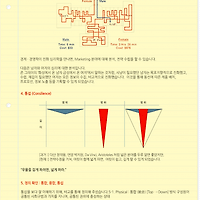
Written by Hae-Young Koh
It was a warm August evening of 2009, at the Courtyard Theatre, Stratford-upon-Avon. The Royal Shakespeare Company production of Julius Ceasar. I was a little disappointed that the mob assassination or Coup d’Etat scene of that night was an over-acted, loud, bloody, and even shallow one, very different from what I had been producing ”in mine own imagination”. Ceasar resisting violently in fear and shock, the “several” strokes of daggers driven in excitation mixed with still-hesitating boldness and determination, cry of pain, fresh blood flowing all over the stage. And, mark the quiet three words, uttered in the very last breath by dying Ceasar, even all of sudden in Latin, in the middle of the familiar English text: “Et tu, Brutè?” (You, too, Brutus?)
When I was little, I never knew why on earth these three words should be that famous.
The fame of “To Be Or Not To Be” is completely understandable enough, even for a little kid. You don’t have to know about or read the whole Hamlet text to feel the sensation these six words evoke. But, “Et tu, Brutè?”, which means simply, “Damn, U 2, you son of bitch !?”, is rather a different story. I finally got the point of these three words, only after having been informed of the little part of the Ancient Roman history and the plot of the bard’s play based on it. Yes, Brutus was Ceasar’s beloved protégé, who later participated in the assassination and soon afterwards gave one of the most demagogic speeches ever written in either theatre or political history.
You never truly see how strongly and deeply you loved something until it ceases to exist, leaves you, or betrays you. Betryal does not deny love, rather, it only reflects the truth of love with painful clarity. “Et tu, Brutè?” is “I love you”, indeed.
Willie Shakespeare handles love themes routinely in many of his plots, verses, and quotes from Classics. Usually, it is not the series of explicit displays of common man-and-woman love affairs, but those much more subtle yet ordinary-looking lines, that actually move people. Here I’d like to walk with you through the rather “inexplicit” trail of love & love betrayed, trodden by the Bard of Avon. Let’s take a look at scenes from a couple more plays: Othello and Hamlet.
In Act 4 Scene 2 of Othello, by calling Desdemona “whore”, “strumpet”, the Moor accuses her of infidelity, which she never even dreams of and denies with grief. Here the Moor gives a soliloquy, talking about his excellent ability to endure life’s hardships;
Had it pleased heaven
To try me with affliction, had they rained
All kind of sores and shames on my bare head,
Steeped me in poverty to the very lips,
Given to captivity me and my utmost hopes,
I should have found in some place of my soul
A drop of Patience. But alas, to make me
A fixed figure for the time of scorn
To point this slow unmoving finger at—
Yet could I bear that too, well, very well.
‘Even if heaven had put me to the test with all sorts of affliction, such as pains, ruthless attacks of shame, extreme poverty, and hopelessness (“give to captivity = imprison” me and my utmost hopes), I should have endured all of them anyway (found even a little “drop of Patience” in my soul to endure them with). Even if the time of scorn continues in my life (the clock of scorn points its slow, almost unmoving arm at me, who is made just “a fixed figure” on the clock), yet I can bear that too.’ In brief, he says, ‘I would endure any kind of suffering, even the most terrible.’ Then he talks of his love for Desdemona;
But there where I have garnered up my heart,
Where either I must live or bear no life,
The fountain from the which my current runs
Or else dries up—
‘The holy place where I have stored my heart, which governs my life and death, The very source (“the fountain”) from which my true existence comes (“my current runs or else dries up”) —‘ Now he says of the love betrayed;
—to be discarded thence,
Or keep it as a cistern for foul toads
To knot and gender in—
‘—If the holy place is discarded or corrupted to become a dirty pool where ugly toads copulate and reproduce—‘ And then he talks to his own “Patience;
—turn thy complexion there,
Patience, thou young and rose-lipped cherubin,
Ay, there look grim as hell.
He tells his “Patience”, which he describes as a happy, healthy, and blessed baby angel (“thou young and rose-lipped cherubin”), to turn its happy face (“thy complexion”) toward his corrupted love, and there he sees the face of his “Patience” turn dark (“look grim as hell”). In summary, he says, ‘I would endure any kind of suffering, even the most terrible, but I cannot endure loss or corruption of the love that I have for Desdemona, …… ever!’
In Othello, Iago portrays a villain who devises tricks to doom the people he hates and is jealous of. He is jealous of Cassio’s promotion to lieutenant, is jealous of Othello’s marital happiness, thus he sets and proceeds the plans to destroy their happiness. Well, that’s right. But, is that all? Willie makes it very clear, from the very start of this play, that there is a special bond between Othello and Iago. Recalling the films and stages I have seen, I should say that most productions miss the nuance of this relationship.
In Act 1 Scene 1, in the middle of the conversation with Roderigo, Iago talks of the unfairness of Othello’s choice of Cassio as his lieutenant;
And what was he? ......
One Michael Cassio, a Florentine, ……
That never set a squandron in the field,
…… Mere prattle without practice
Is all his soldiership. But he, sir, had the election;
And I, of whom his eyes had seen the proof
At Rhodes, at Cyprus, and on other grounds
Christened and heathen, must be beleed and calmed
By debitor and creditor. This countercaster,
He, in good time, must his lieutenant be,
And I, God bless the mark, his Moorship’s ancient.
‘Michael Cassio is an unexperienced soldier from Florence, who has never set troops in the real battle field, who knows and talks only of the theories learned from books (“mere prattle without practice”, “debitor and creditor” [book-keeper], “countercaster”), On the other hand, having gone through everything with Othello in various many battle fields, I am the most experienced soldier and faithful companion of his, whose value has been proved by the hardships he and I shared. Why, then, must Cassio be elected as his lieutenant, and must I remain only his ensign?’ (“ancient” or “ensign” is a standard [army flag] bearer, the lowest rank in the army troop)
To fellow soldiers who together have fought side by side at dangerous, life-threatening battle fields, their bond is of a very unique nature. It “is” love. So, yes, Iago’s love has been betrayed here. In the 1981 BBC TV production, directed by Jonathan Miller, Bob Hoskins plays Iago as a wicked simple villain, by sounding these lines with a simple “cursing”, villain-like voice. In Oliver Parker’s 1995 film, Kenneth Branagh bears teary eyes while saying, “And I, of whom his eyes had seen the proof at Rhodes, at Cyprus, and on other grounds Christened and heathen, ……”, at an almost whisper-like, low-key tone. In the very last scene of this play, Othello asks Cassio to ask Iago (who is now arrested and stabbed by enraged Othello) of his motivation for this villany (“…Will you demand that demi-devil why he had thus ensnared my soul and body?”). Iago says;
Demand me nothing. What you know, you know.
From this time forth I never will speak word.
He means, ‘Do not ask me to explain why I did committed this terrible crime. After all that I went through, how could I dare to reveal to you, you a bunch of ignorant people, what I really felt about Othello?’ “What Iago really felt about Othello” has never been elaborated or even dealt with in any production until this 1995 film.
In Act 3 Scene 2 of Hamlet, Hamlet greets his best friend, Horatio, with a compliment (“thou art even just a man as ever my conversation coped withal.”). Answering, Horatio gestures, “Please, do not flatter, my lord!”. But Hamlet denies any hint of flatter in his words and continues;
Since my dear soul was mistress of her choice
And could of men distinguish, her election
Had sealed thee for herself. For thou hast been
As one in suffering all that suffers nothing,
A man that Fortune's buffets and rewards
Hast ta'en with equal thanks; and blessed are those
Whose blood and judgment are so well commeddled
That they are not a pipe for Fortune's finger
To sound what stop she please. Give me that man
That is not passion's slave, and I will wear him
In my heart's core, ay, in my heart of heart,
As I do thee.
—Something too much of this.—
This must be my favorite, my “the most beloved” paragraph of all written by the Bard.
Here he calls his feeling-deep-inside or himself as “my dear soul”, and talks about it, or rather “her”, as if talking about some woman, who is in love, in love with Horatio (“mistress of her choice”; ‘could distinguish her man from other men’; “had sealed thee for herself”=”had defined you as her man”). Hamlet goes on exolting his friend by describing him as one who goes through all the sufferings but never brags of doing so, and who accepts both adversities (“Fortune’s buffets”) and benefits (“rewards”) with humility. Then he talks of some noble kind of people, worth being blessed, whose passion (“blood”) and reason (“judgment”) are balanced with each other so well that they never fall prey to the Goddess of Fortune (“not a pipe for Fortune's finger to sound what stop she please”). And he looks for this same kind of noble man who is wise and “cool”, and he is willing to carry the noble man deep, deep inside his heart, …… now, here is the punch, …… Boom! suddenly, “As I do thee.”, which means that Horatio is the noble man whom he “wears in his heart of heart”. A succinct, therefore utterly powerful, last line, with a typical iambic rhythm, “As-I-do-thee”: Teeh-Dum, Teeh-Dum, that here only the English language can display.
How can anyone say “I love you” or “I adore you” better than this?
One more thing, before I save this manuscript: Willie does not forget to give a comic touch in this sentimental yet tingly confession. Hamlet adds, “—Something too much of this—” , meaning, ‘This is too much sweet!’, and changes the subject by beginning to tell his friend about the play to be performed that night in front of the King and Queen.
'KIST Talk > 사내직원기자' 카테고리의 다른 글
| 시를 이해하는 기쁨 (0) | 2011.05.26 |
|---|---|
| 자신의 가치를 높여라 (0) | 2011.05.26 |
| Einstein and Violin (0) | 2011.05.13 |
| 21세기 지식 생태계와 학문의 통섭(統懾) (0) | 2011.04.29 |
| "브루투스, 너도냐?": 사랑과 배반 (1) | 2011.04.29 |





